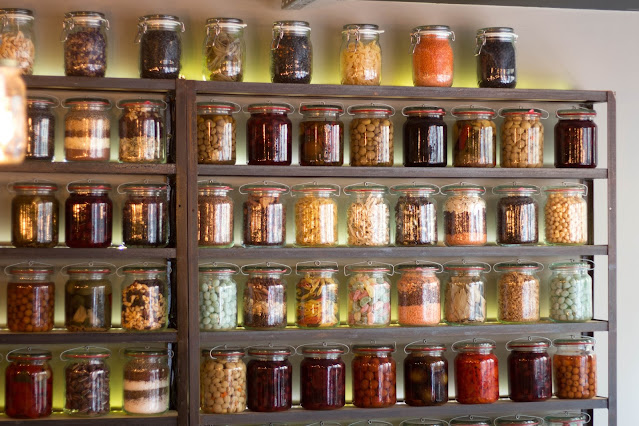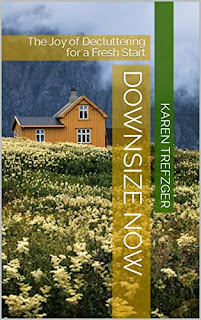How to Soothe "Just in Case" Concerns
One of the biggest concerns about minimalism is the worry that we'll declutter something we wind up needing later. It's why we hang on to twice (or more) of the dishes, tools, or clothes we actually use. When it comes to keeping things we don't need, "just in case" might be the most tempting rationale of all.
But it's a little like an alcoholic's "Just one more" or an unfaithful partner's "Just this once." It's the top of a slippery slope.
An extra bottle of hand soap, some canned food, and spare rolls of toilet paper are useful and appreciated during a power outage or a bad storm. But when do extras become something more than a convenient supply? When does "just in case" go beyond practicality and tip into fear?
3 warning signs to watch for
1. The extras number beyond common sense.
If you have eight sets of sheets for your bed, 27 Tupperware containers, and a gross of ballpoint pens "just in case," you're sacrificing space and making it harder to organize and access what you need.
2. The extras hide in plain sight.
A friend can't open her door all the way because cases of diapers line the entryway. Maybe your extra bedroom is piled high with boxes. If "just in case" items overload your living space, they probably interfere with daily life. You may not even remember what you have, or be able to locate it if you do.
3. The extras could be useful – if only they were used.
My parents-in-law kept many "just in case" items until they were useless. Outdated or damaged by time, they lost their "just in case" potential. Thy might have been valuable to someone else years ago, but they were wasted in storage.
What if I need it someday?
- "What if I need these sweaters after I donate them?"
- "What if I become newly inspired to use this treadmill?"
- "What if we have another pandemic and we're stuck at home wishing we had the 19 jigsaw puzzles I just gave away?"
"Just in case" sounds like frugal practicality, doesn't it? But like your Depression-era grandma's hundreds of saved bread bags and dozens of jars of nails, screws, and thumb tacks, there's a point which looks like you've lost the capacity for rational decision-making.
Would someone else looking at your stash think you're flirting with danger? Would they think you're justifying a harmful habit?
Worst-case scenarios
Say you find a great recipe for Bundt cake after you give away the pan, or you succeed in losing 20 pounds and those too-small jeans you sold on Craigslist would probably fit now. What will you do?
If you take your fears far enough, they look funny. You're resourceful. You'll borrow a Bundt pan, use another pan you have, or make brownies instead. You'll find jeans at the thrift store, raid your skinny sister's closet, or get a brand new pair with some of the money you've saved by not buying things you don't need. The same goes for sweaters and puzzles, and if you want more exercise, you'll go outside and walk, ride a bike, or use the fitness structures at your local park.
The longer you live with less, the more flexible and confident you'll become.
Instead of worrying about what you might need in some imaginary future, why not celebrate because you have what you need for today, with a little extra in reserve? Then you can be thankful for your blessings and generous with all those extras.
There's one thing you do need.
It's my newest book, Downsize Now: The Joy of Decluttering For a Fresh Start.*
* This blog is reader-supported. If you buy through my links, I may earn a small commission.
Whether you actually move from your current home into a smaller living space, or simply undertake a radical declutter, Downsize Now will give you the tools and inspiration to get the job done. By releasing decades'-worth of accumulated items, you can emerge with more energy and freedom, ready to live your best life.







Comments
Post a Comment